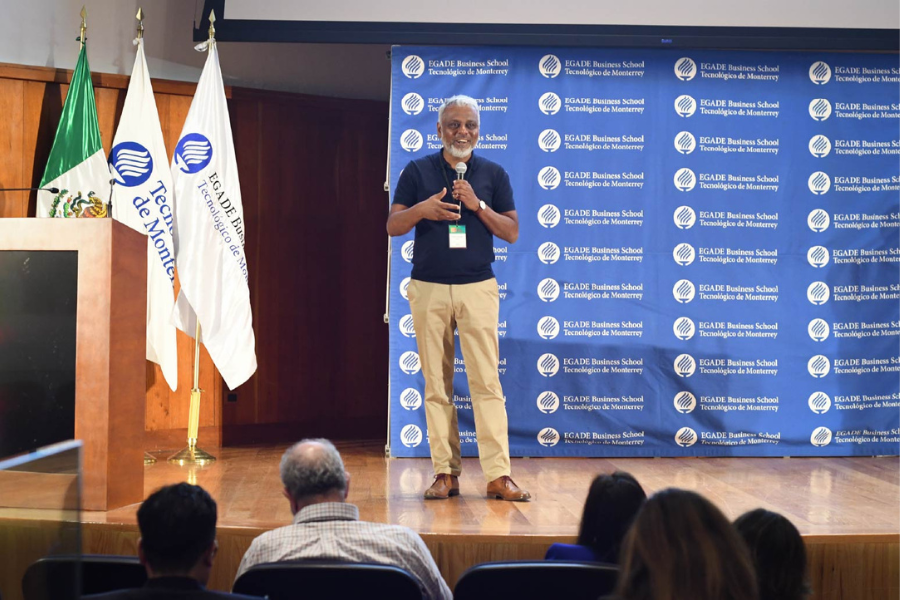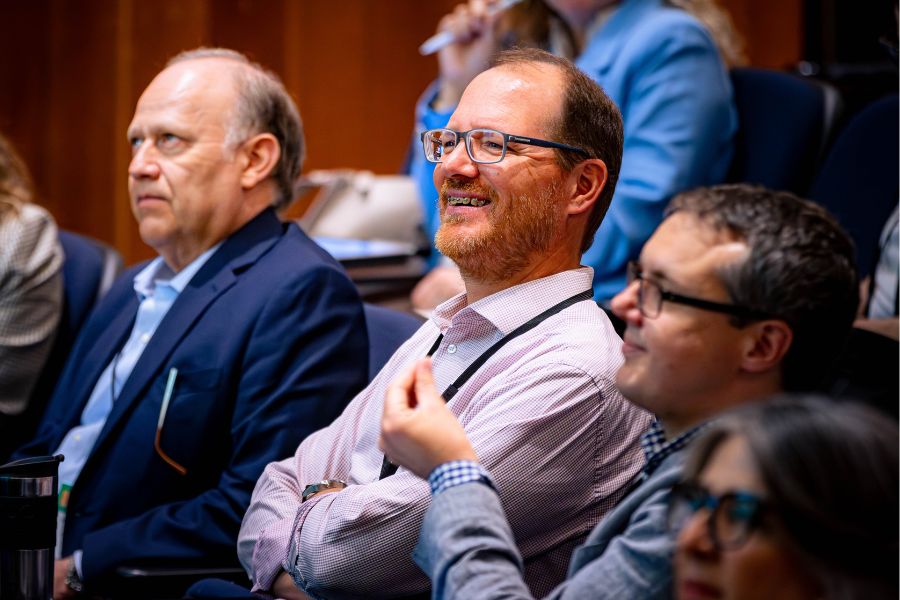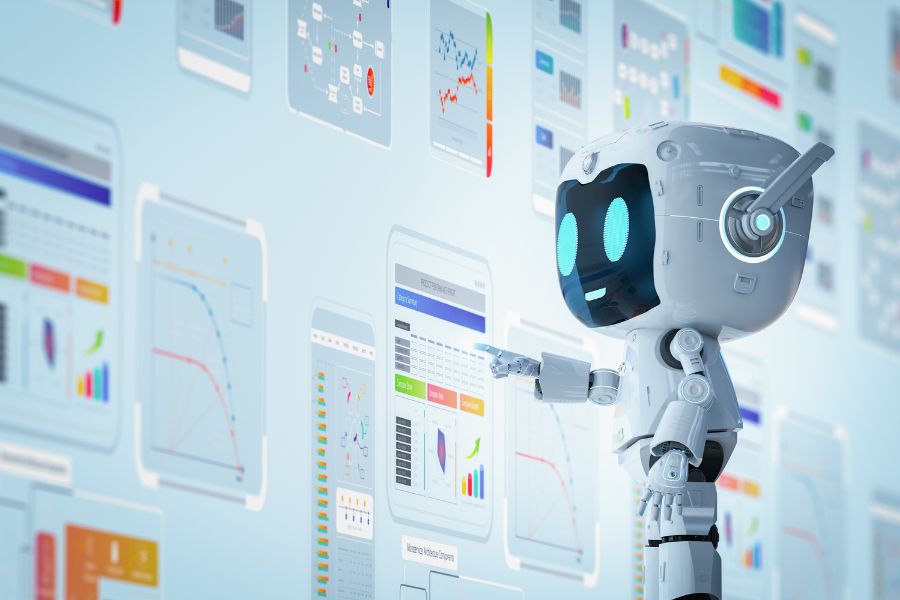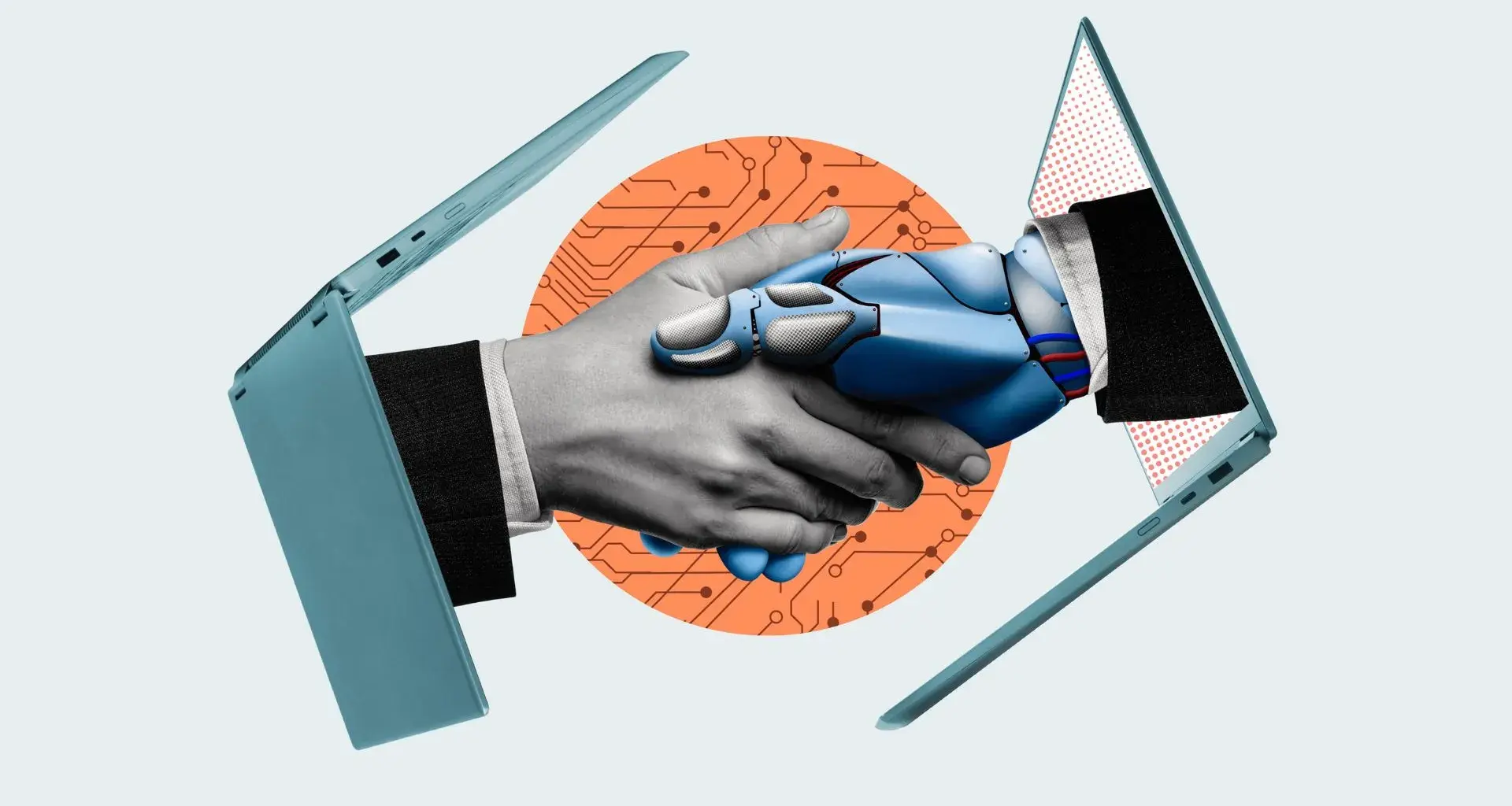Prasad Jayaraman, Director of Cybersecurity at KPMG, has highlighted the importance of structuring data so family businesses can gain competitive advantages through artificial intelligence (AI).
During Global Family Business Summit 2025, Jayaraman highlighted that there is still a gap in leveraging the benefits of AI, despite many organizations already implementing it.
In his talk “Transforming Family Enterprising Through Innovation and IA” held at the EGADE Business School in Monterrey, the executive said that AI’s value lies not only in automating tasks but also in transforming companies’ structures and operations.
He stressed that although current technologies enable AI to process tasks more quickly, human intervention is still necessary for final decision-making.

Adopting AI is vital for future growth
Jayamaran, who has lived in Silicon Valley for the past 30 years, mentioned that family businesses should review their data strategy.
“Analyze where your data is located, how it is organized, and how to prepare it for the next generation of technological advances that will leverage it to generate new knowledge and ways of doing business.”
Although he said that more and more companies are innovating by adopting AI technologies, there remains a significant gap between companies that do not yet know how to gain a competitive advantage in the market.
He said the main reason for this gap is that a lot of preliminary work needs to be done before these technologies can be leveraged.
“You have to organize your data and processes, prepare your change management, and understand the impact on your workforce.”
“Data organization is critical to leveraging AI. If we don’t harness the power of that data, we’ll be left behind,” he said.
“Data organization is critical to leveraging AI. If we don’t harness the power of that data, we’ll be left behind.” - Prasad Jayaraman
He pointed out that, in the last six months, AI has made enormous strides in its reasoning skills, which can be applied to virtually everything a company does.
“We’re facing a structural change beyond just automation. It’s not just about improving existing processes but about profoundly changing companies’ designs and operations.
“It’s an incredible opportunity for family business leaders to think about how AI is going to change their business models, the value they offer, and how that will improve decision-making,” he said.
He explained that a task to review data and documents, which takes 30 people to do in 30 days, can now be done by technology that automatically processes all the information in one or two days.
However, the expert mentioned that “human experience is still necessary to direct AI, interpret results, and make final decisions, although AI greatly accelerates the process.”

The human workforce will have to change due to AI
the competitive difference between companies will have to be the human factor.
He explained that people will need to develop the skill of understanding data and interacting with AI.
“In Silicon Valley, there is increasing talk of the ‘magic worker’ as a key indicator. Every interaction between your employees and AI makes AI smarter,” he said.
Jayaraman said that some companies are changing how they hire staff, using AI to create profiles based not only on résumés but also on all available public information, and ‘matching’ corporate culture with candidates, all based on AI.
“This will exponentially increase hiring quality compared to traditional methods,” he said.

When a digital employee joins the organizational chart
Jayaraman stressed that although we are still in the early stages, the most innovative companies are already using AI agents and seeing the benefits, which makes them the next big thing in organizations.
These new digital identities act and behave like humans in a business or other environment, not only understanding and processing data but also being able to act upon it.
“Now, an AI agent can receive specific instructions, perform all those tasks for you, and deliver a result,” he said.
Agents are software entities that fulfill objectives, plan actions, use reasoning engines, and make decisions based on context and memory.
He said that there are different types of agents: some are basic and analytical and can generate ideas; others, called knowledge agents, interact with your data using natural language.
Knowledge agents can perform complex workflows, obtaining the data needed to complete tasks that can be used indefinitely, improving their intelligence each time.
He also said that some agents are digital workers. They are assigned a specific role and can become AI “employees.”
“This has many implications for change management, security, employee morale, creativity, and increased productivity.”
“In the next one to five years, companies that don’t adopt AI agents will fall behind because the enormous value of implementing them is clear.”
Some CFOs use AI to process accounts payable and accounts receivable that go to a shared financial folder. Analysts separate and process the data to enter it into accounting systems.
About el Global Family Business Summit 2025
Global Family Business Summit 2025 was held in Monterrey from May 14 to 16. It was organized by the Institute of Family Enterprise for Mexico and Latin America (IFEM) from EGADE Business School and STEP.
Horacio Arredondo, Dean of EGADE Business School, highlighted Tec de Monterrey’s commitment to supporting these families through research, intergenerational dialogue, and the formation of strong networks.
“Together, let’s tackle the challenges of the present and build opportunities for the future with determination and an entrepreneurial mindset,” said Arredondo.
Andrea Calabró, Global Academic Director of the STEP Project, said this summit is, above all, a space for connecting, exchanging ideas, and collaborating between generations.
In addition, the director pointed out the importance of creating lasting connections and celebrating the resilience of family businesses, topics addressed throughout the keynote speeches, workshops, and panels at this summit.
“The future of family businesses is built together: one story, one idea, one generation at a time,” concluded Calabrò.
YOU MAY ALSO BE INTERESTED IN:





